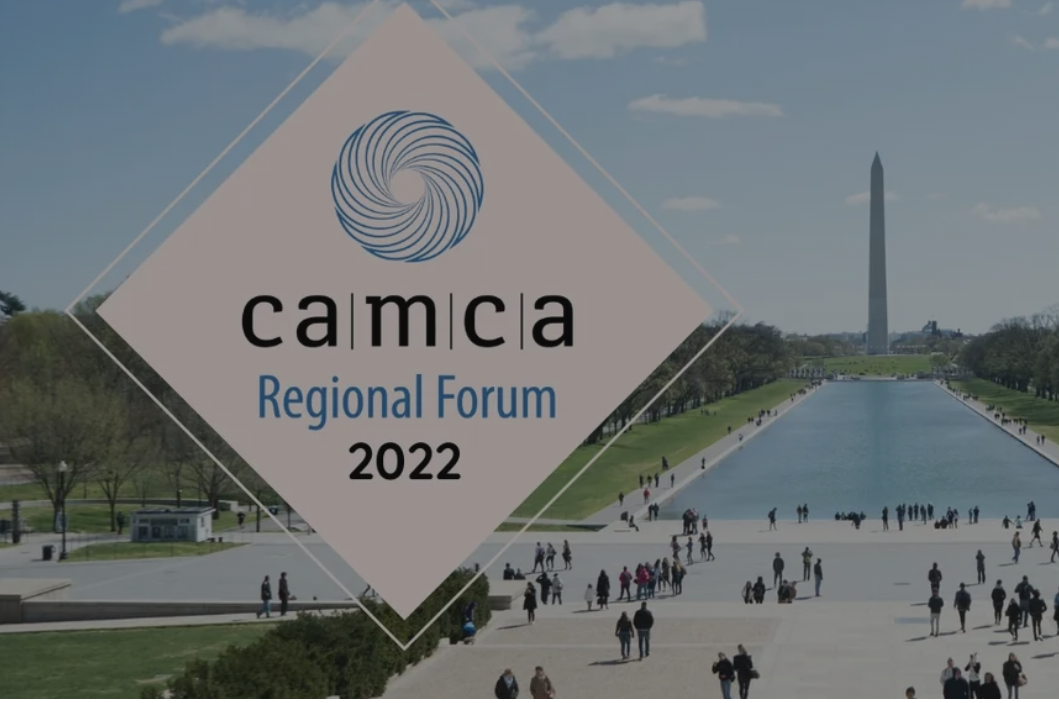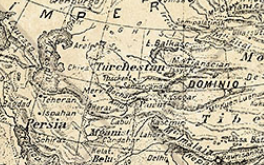Register for the June 15-16, 2022 CAMCA Forum!

Join us June 15-16 for the 2022 CAMCA Regional Forum!
THEME: "New Geopolitics and Geoeconomics in CAMCA"
SESSION TOPICS
- CAMCA Geopolitics after Ukraine: What’s Desirable? What’s Possible?
- How to Deal with Echo-sanctions in CAMCA
- Building Modern Skills in CAMCA Countries
- Securing CAMCA’s Digital Future in an Era of U.S.-China Geo-Tech Rivalry
- Trade and Transport in CAMCA: Regional and Global Connectivity
- What’s Next in Afghanistan?
- Prospects of Regional Financial Structures in CAMCA
- Women Taking Power in CAMCA: Prospects and Barriers
- Food Security and Building Agritech in CAMCA
- Meet the New Entrepreneurs of CAMCA
- Accelerating Regional Cooperation in Policy Analysis: A Roadmap
- Investing in CAMCA: How to Seize Opportunities
Forum speakers represent a wide variety of sectors and expertise across the CAMCA region and beyond...
Below is a sample of the international and U.S.-based organizations and businesses that confirmed speakers
- Central Asia-Caucasus Institute
- American University of Afghanistan
- National Development Agency of Mongolia
- Chemonics International Inc.
- Cintana Education
- Education Committee of the Georgian Parliament
- Special Inspector General for Afghanistan Reconstruction
- UNDP Kyrgyzstan
- Hudson Institute
- Batumi Multimodal Terminal
- Free Democrats Party of Georgia
- T-Cell Tajikistan
- White & Case LLP
- CJSC Bank of Asia
- Center for International Private Enterprise (CIPE)
- Center for Strategic and International Studies
- Avesta Investment Group
- Atlantic Council
- Alif Capital
- And many more...
|
The CAMCA (Central Asia-Mongolia-Caucasus-
CACI Webinar - Central Asia-Caucasus Economic Outlook: Divergent Recoveries in Turbulent Times
Speakers:
Moderator:
Confronting Global Challenges in the CAMCA Region
CAMCA (Central Asia, Mongolia, the Caucasus and Afghanistan) is a vulnerable region grappling with a range of issues including low connectivity, economic dependency, food security, poor governance, corruption, and terrorism - all exacerbated by the COVID-19 pandemic. Not fully recovered from the pandemic's negative impacts, the war in Ukraine poses a new set of political and economic challenges. In addition, the reemergence of the Taliban and terrorist syndicate in Afghanistan has created a new phase of security challenges for the entire region. The presentation by the spring 2022 Rumsfeld Fellows examined the challenges posed to the CAMCA region by the pandemic, Taliban, and Ukrainian conflict, and suggest possible solutions.
When: Tuesday, May 3, 2022, 3:00-4:30 PM EST
Where: Middle East Institute, 1763 N St NW, Washington, DC 20036
Co-organizers: The Central Asia-Caucasus Institute at AFPC, The CAMCA Network and The Rumsfeld Foundation
CACI Forum: Turkey and the Russia-Ukraine War: Impact on Central Asia and the Caucasus
Turkey is trying to avoid openly taking sides in the war of Russia against Ukraine. While condemning the Russian invasion and supplying Bayraktar drones to Ukraine, Turkey did not join the economic sanctions against Russia and in fact may seek to benefit from the Western sanctions against Russia, all while acting as a facilitator of negotiations between the parties. The backdrop of Turkey’s actions is gradually growing Turkish influence in the Caucasus and Central Asia. In this forum, speakers will address how Turkey’s strategy affects the wider region from Eastern Europe to Western China.
Date: April 20, 2022, 10.00 AM, EST.
Speakers:
- Ambassador Matthew Bryza, Board Member, Jamestown Foundation\
- Suat Kiniklioglu, Former Member of the Turkish Parliament
- Svante Cornell, Director, Central Asia-Caucasus Institute at the American Foreign Policy Council
Moderator:
Fred Starr, Chairman, Central Asia-Caucasus Institute at the American Foreign Policy Council
Register for the Zoom webinar: https://us02web.zoom.us/webinar/register/WN_nvN2Lu0ZROKoZASfi8Su1w
The event will also be live-streamed on the CACI Facebook page and here on the Silk Road Studies website.
New Article Series on Changing Geopolitics of Central Asia and the Caucasus




